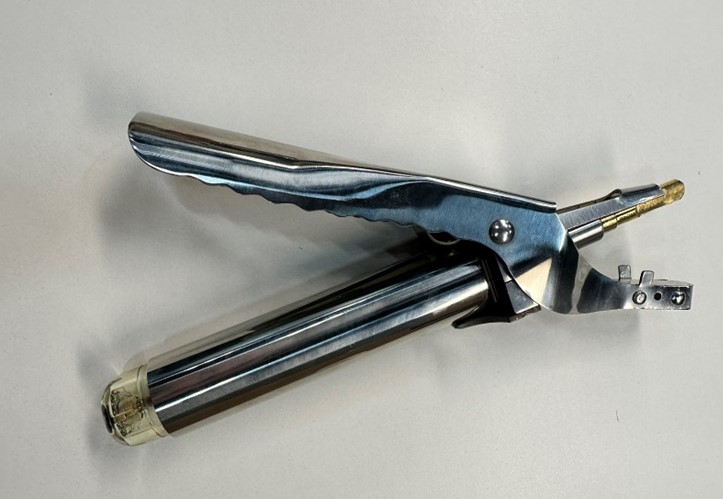Porcine circovirus type 4 detected for the first time in Europe

Porcine circovirus infections are caused by a virus of the genus Circovirus, and there are four known serotypes of this virus. Of these, PCV4 is the most pathogenic and has previously only been detected in CHINA, SOUTH KOREA and Thailand. However, a new study conducted at the University of Extremadura has shown the presence of infection in wild boars and domestic Iberian pigs in Spain.
it is interesting to note that the virus has not been detected in animals living in the east and northeast of the country and in Italy. This suggests possible intraspecific and interspecific transmission of infection, with wild boars most likely being a potential reservoir of the virus.
The scientific researchers also found that porcine circovirus type 4 has high genomic identity with mink circovirus, reaching 66.9%. This indicates the possibility of transmission of infection between different animal species. In addition, in isolated cases it has been observed that this type of infection can be transmitted to dogs.
This discovery is of great importance for veterinary medicine, as it allows us to better understand the mechanisms of spread and transmission of the virus. This also highlights the need to take precautions and develop strategies to control and prevent the spread of circovirus infections in pigs and other animal species.
The results of this study are an important step in the control of viral infections in pigs and highlight the need for ongoing monitoring and development of effective programs to control the spread of viruses.
Read together with it:
- An HSE expert reported on the "evolution of inequality" in access to healthcare.An HSE researcher analyzed Russians' access to healthcare over a ten-year period. In 2021, the influence of financial factors became noticeable for the first time: low income reduces the likelihood of visiting a DOCTOR.Over the ten years from 2011 to 2021, the number of Russians requiring medical care but not receiving it remained virtually unchanged, according to a study by Lyudmila Zasimova, hea...
- Китайский рынок мяса: консолидация, меры безопасности и проблема субпродуктов«Мы завершаем выставку CIIE в Шанхае, в целом хорошую выставку, где мы видим консолидированные цены, как это было с начала года, но в то же время рынок ожидает решения по защитной мере, определения которой должны быть даны в конце ноября», — сказал он Valor Agregado Agro. Лидер пояснил, что глобальная ситуация характеризуется «колебаниями на международном рынке, вызванными интенсивной геополитичес...
- Pharmaceutical companies see a threat to EU security due to bacteria in UkraineAntibiotic-resistant superbugs have been detected in Ukrainian soldiers since the beginning of the conflict, and now they pose a threat to Europe, according to a foundation developing antibiotics.The Ukrainian conflict threatens Europe with antibiotic-resistant "superbugs," said Henry Skinner, CEO of the AMR Action Fund, which specializes in investing in antimicrobials. His article was published o...
- В Амурскую область поступило свыше 6 тысяч тонн мяса птицы из КитаяС 3 июня по 6 ноября инспекторы проверили 290 партий мяса, все из которых были сопровождены ветеринарными сертификатами, подтверждающими их качество и безопасность. Лабораторные исследования, проведенные под контролем Россельхознадзора, не выявили нарушений, и груз был допущен на территорию России.
- Китай рассматривает возможность введения пошлин на аргентинскую говядинуВ преддверии открытия новой Китайской международной импортной выставки (CIIE), одного из важнейших торговых мероприятий в мире, возникла проблема, затрагивающая всю цепочку поставок скота и мяса из Аргентины: китайское правительство ввело «защитную» процедуру в отношении импорта говядины. Эта мера, вступившая в силу в декабре 2......
- Scientists have identified a human virus comparable to COVID-19.The human respiratory syncytial virus (RSV) may be comparable in severity to influenza and CORONAVIRUS. This is the conclusion reached by Singaporean researchers collaborating as part of the PREPARE program, according to the press service of the Singapore General Hospital. Scientists conducted three studies to assess the severity of the disease, the risk of cardiac complications, and its long-term...
- «Новые воротнички»: почему компании начали ценить кандидатов без дипломаНа рынок труда хлынула волна новых воротничков — высококлассных специалистов без высшего образования. Как пересмотреть подходы к найму, чтобы не упустить самых перспективных из них, рассказывает Алексей Клочков, основатель HR-tech компании Happy Job Раньше большинство компаний при найме сотрудников уделяло повышенное внимание диплому. Однако теперь, поступая таким образом, они лишь создают себе пр...
- The Genbiotech agrobiotechnopark project for genomic selection of cattle is being launched in Kazan.The center will be built on the site of a former tuberculosis sanatorium, covering 4,400 square meters, as well as on a 19,100 square meter plot of land, which will provide the necessary infrastructure. The center will house a genetic laboratory capable of conducting up to 600,000 tests per year, which will accelerate the breeding process and improve cattle productivity . The technology park also ...




























































